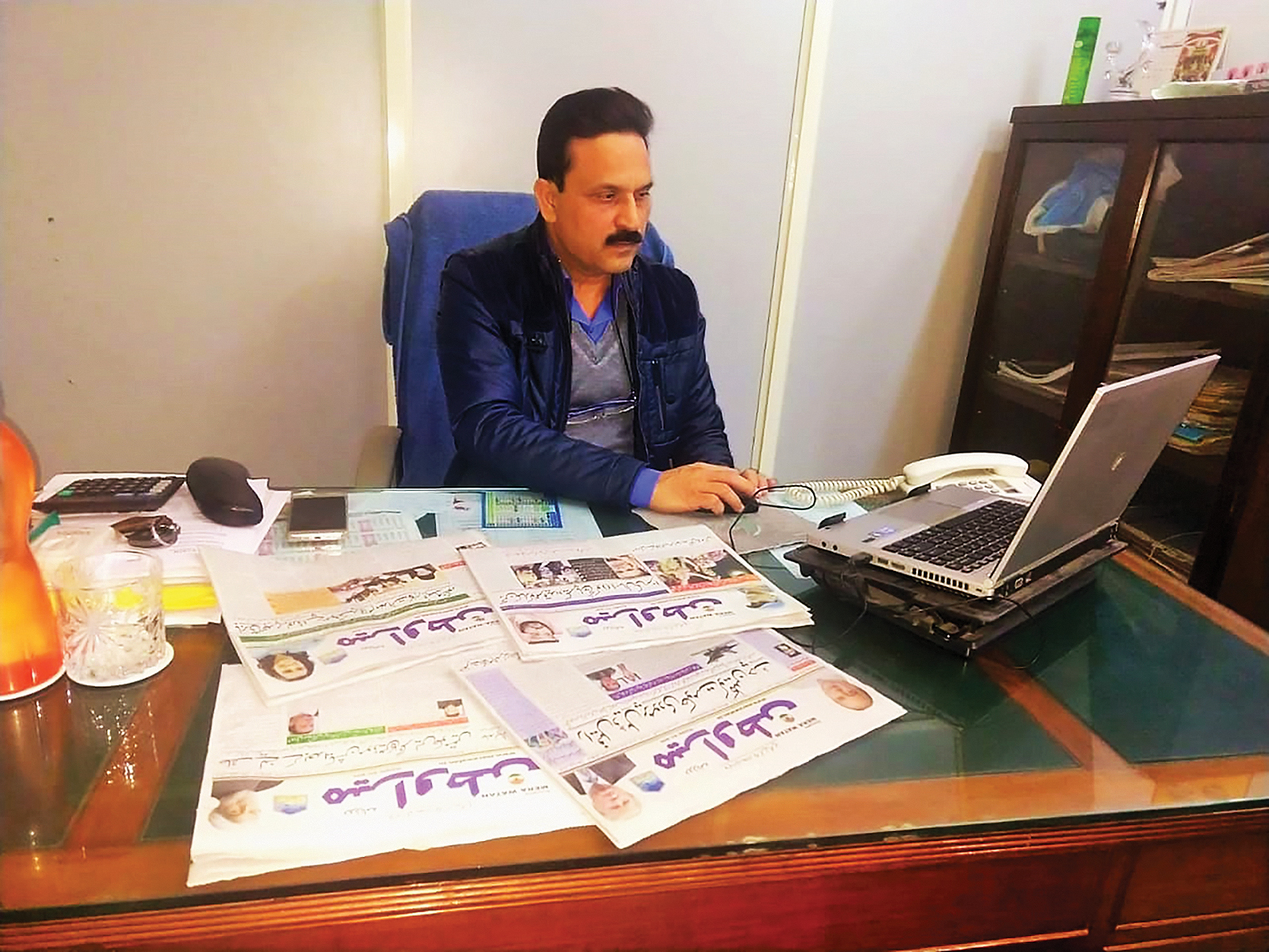
In Delhi alone, about a million people can read Urdu. But over the years, Urdu has been associated with the people of a certain community as there has been a decline in Urdu speakers among non-Muslims.
Yet Urdu is among the six most widely spoken languages of India, along with Hindi and English, and is the one of the very few languages spoken in more than one state, with at least one Urdu newspaper published in more than 20 states/union territories. Contrary to popular perception, according to the Registrar of Newspapers for India (RNI), Urdu newspapers have seen a robust growth over the last few years. They saw an increase during the mid-1960s, in the late 1970s, then again during the late 1980s and early 1990s and again after 2006.
Most of the Urdu publications are registered in five states and 23 cities, out of which Uttar Pradesh and Delhi are the leading states.
Urdu media is often criticised on the grounds that it has become a mouthpiece of the community and plays on popular biases, reinforcing the narrative that it’s difficult to be a Muslim in India. There’s lack of objectivity, inclusion of a larger world view and holistic analysis. Two scholars and a senior journalist, who didn’t want to be quoted by name, are of the view that Urdu is not the language of Muslims alone, but more than anyone else, it’s the Urdu media that is responsible for communalising the language.
“The reform of Urdu media is integral to the reform of the whole community of Muslim and to integrate them fully with the mainstream,” says an Urdu scholar who also writes in Hindi and English. But the scholars feel that the change has to come from within the community; as they popularly say:
charity begins at home. A glimmer of hope and a step in the right direction is the Urdu daily Rozama Mera Watan. It was started three years ago by Arshad Faridi, who has 25 years experience in Hindi journalism, and now has a circulation of more than 50,000 in north India.
Faridi, who belongs to the Sufi family of Salim Chishti of Fatehpur Sikri, wanted a newspaper in Urdu that would address two issues — the alienation of the community and distorted news. “India is my country, and Muslims have nourished this country with their blood. Deobandis participated in the national moment with their heart and soul. I’m a Muslim and a patriot and the two terms are not mutually exclusive,” he asserts in Urdu.
Muslims are dubbed time and again as anti-nationals. And Urdu press has only added fuel to the fire. Afridi asserts that this is not true, Muslims are as Indian as member of any other community.
The community has to be exposed to news from all over the world in an objective way, not in a distilled or narrow and negative manner. Rozama Mera Watan, as the very name suggests, endeavours to give Urdu readers a factual account of events that matter from India and abroad.
Abdul Rehman, a Supreme Court lawyer who is an expert in Ghalib’s work and regularly contributes articles in Hindi, Urdu and English, says, “I’m following the paper from its inception and support their editorial policy. They don’t subscribe to an ideology or point of view of a particular political party. It’s not like other Urdu dailies that get identified with a particular political interest group.”
After all, he asserts, this is the basic requirement of any journalistic publication, to give facts to its readers and let them decide for themselves.
Some scholars are of the opinion that the criticism that Urdu media is community-driven is not entirely misplaced. Faridi makes it very clear that the media should not be employed to provoke communal sentiments for or against a community. On the contrary, it should help create an informed society that makes informed decisions.
“Rozama Mera Watan endeavours to bring Muslims in the mainstream and not alienate them, it’s not a newspaper for ghettos,”Faridi explains in Urdu.
The paper had to face opposition and was trolled for ‘having joined hands with anti-Muslims forces’. But Faridi is undeterred, nothing really has been able to prevent him from implementing his vision in the last three years. The going has been tough. He has sold property, taken loans, sought donations, and run this daily on a shoestring budget from a basement in Bhogal. There were occasions when he had no option but to suspend publication, but the support of committed readers has given him the motivation to keep up the good work. “If I had political masters, this wouldn’t be the state of finances,” he jokes.
The newspaper covers a host of issues — like politics, travelogues, interviews, discussion on career options, art and architecture, culture and a lot more that isn’t community specific. Urdu scholar, Khwaja Abdul Muntaqim, makes an interesting observation, “There are many readers of Urdu newspapers and periodicals but not many buyers. People just read it in a tea shop or other public places.”
His criticism is that the Urdu media lacks an objective approach and more often than not, is seen playing the communal card. So he’s happy that there’s a newspaper that lays emphasis on cultural issues, rich literary traditions and poetry, communal harmony and common history. “The two communities have strong reasons to be together rather than to fight,” he adds with a smile.
Five quiet corners across Delhi-NCR where February evenings slow the city down, letting breeze, fading…
A solo exhibition by Anjali Mittal exploring emotion, memory and intuition through layered blue-hued paintings
The incident occurred on Saturday near Bakhtawarpur. A senior police officer said a team rushed…
V K Saxena approves 20 per cent reservation, age relaxation, and test exemption for ex-Agniveers…
The fair at Gandhi Darshan brings together emerging and senior artists, showcasing over 200 artworks…
State Names Authority approves renaming of two metro stations and modifies seven others, aligning station…